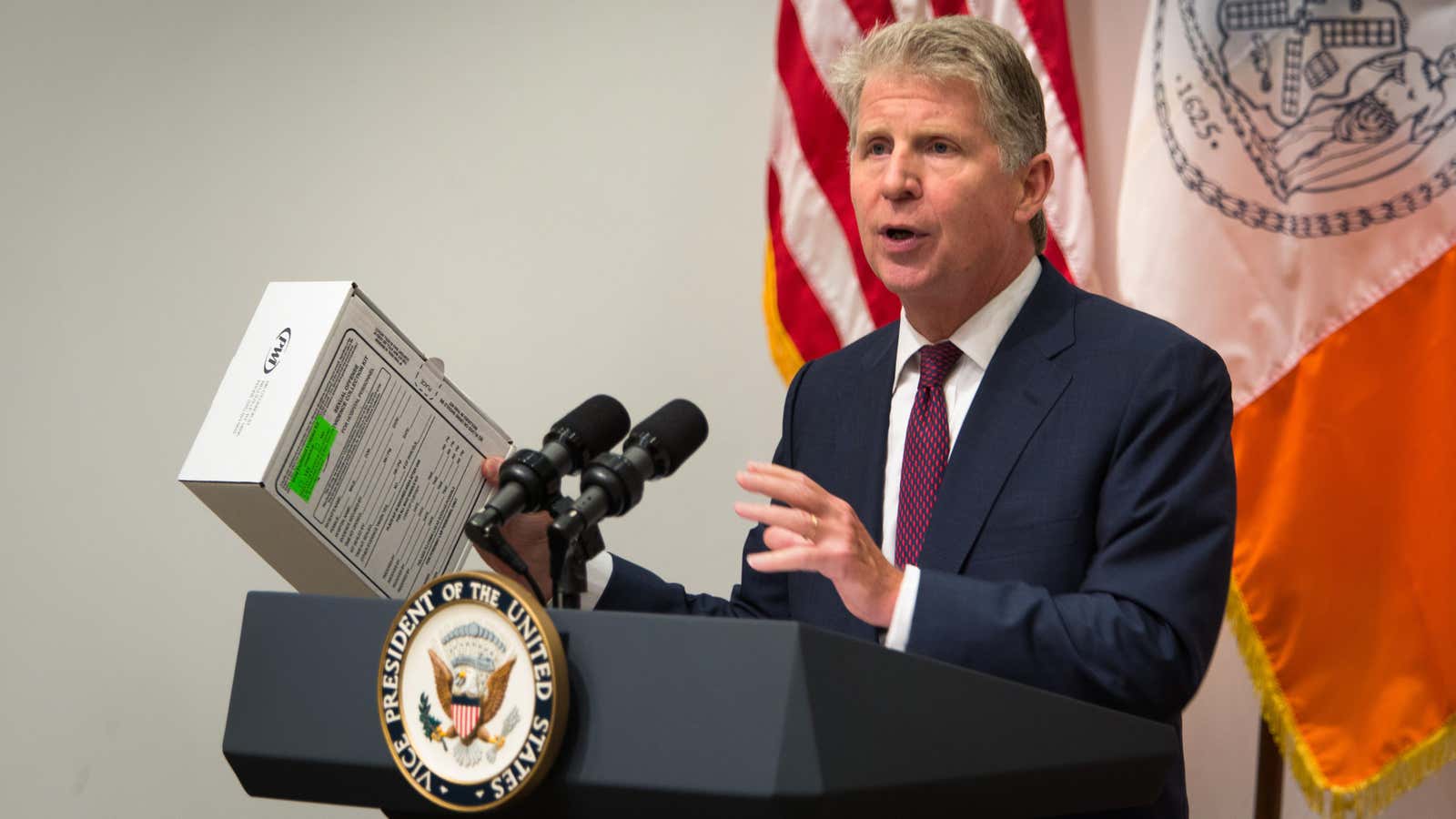Manhattan district attorney Cyrus Vance Jr is a Democrat who has been New York County’s chief prosecutor since 2008. He is also, at the moment, a very controversial figure.
On Oct. 4, the New Yorker (paywall) revealed that Vance had ordered his prosecutors to drop an investigation into Donald Trump’s children, Ivanka and Donald Jr, for allegedly inflating the worth of a property in New York to prospective buyers. Just a few days later, the same magazine (paywall) revealed that he had decided not to press sexual abuse charges against Harvey Weinstein, the high-powered Hollywood producer, after listening to a police tape of Weinstein aggressively propositioning a model, Ambra Battilana Gutierrez. Weinstein has now been accused of sexual harassment and rape by a host of women.
What links these two cases is that in both of them, Vance received hefty campaign donations from lawyers for the people involved. Donald Trump’s lawyer, Marc Kasowitz, had given $25,000 to Vance’s campaign, the New Yorker reported. Vance had returned the money after Kasowitz asked him to intercede on the Trump children’s behalf—as is customary with people involved in investigations. But a few months after deciding not to prosecute them, Vance accepted another, larger donation and fundraising help from Kasowitz, worth a total of about $50,000. Similarly, a few months after Vance decided to drop the case against Weinstein, the producer’s attorney, David Boies, donated $10,000 to the prosecutor’s campaign.
In both cases, naturally, Vance denies that his office’s decision not to prosecute had anything to do with campaign donations. But even if this is true, it’s hard for him or any other US district attorney to dispel the taint of corruption in cases like these. It’s widely understood that in politics, votes cost money and money usually comes attached to requests for favors. That undermines trust in the justice system. And this is a uniquely American problem, as the US is the only country in the world that elects prosecutors by popular vote.
The practice started in Mississippi in 1832, and other states quickly followed. Only in Alaska, Connecticut, New Jersey and Washington, DC are prosecutors appointed. Ironically, the original intent was to free prosecutors from political patronage, making them answerable to local citizens rather than to influential authorities. However, it didn’t solve the problem: Political parties controlled nominations and blocs of voters, so anyone wanting the job of district attorney was still beholden to them. And there can’t be true separation of powers when the judicial branch is so deeply linked with politics.
That’s not all: Research shows the need for public approval makes prosecutors focus on “winning” cases rather than seeking justice. That translates into prosecutors preferring longer prison sentences, which are thought to help their careers, and selecting cases to take to trial based on the possible re-election outcomes.
The system also perpetrates racial and gender discrimination in criminal justice. A 2015 report found that 19 out of 20 elected prosecutors are white, and in three out of five states none of them are black. That makes them likely to be blind to, and perpetuate, systemic racism in the police force and the criminal justice system as a whole (black Americans are five times as likely as white Americans to be incarcerated). Since prisoners can’t vote, that in turn makes the voter pool disproportionately white, which perpetuates the imbalance among district attorneys. Moreover, 83% of elected prosecutors in 2015 were male, which may explain why charges against sexual harassers like Weinstein aren’t brought more often.
There’s a similar problem with judges: While federal judges are all appointed by the president, 90% of state judges are elected, and they too are disproportionately white and male.
